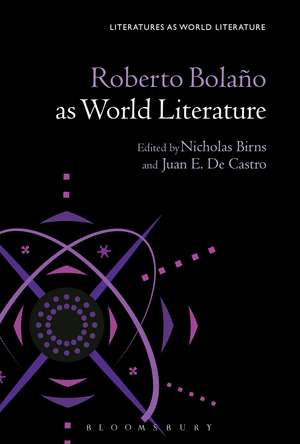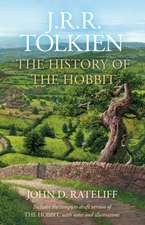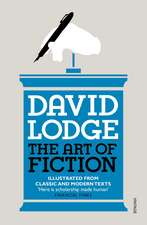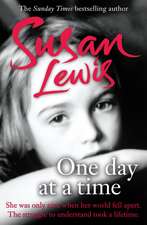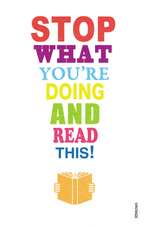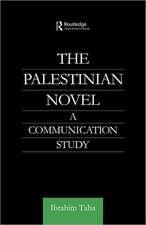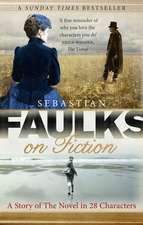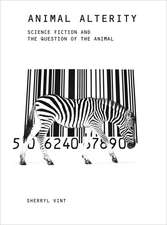Roberto Bolaño as World Literature: Literatures as World Literature
Editat de Professor Nicholas Birns, Professor Juan E. De Castroen Limba Engleză Paperback – 25 iul 2018
Roberto Bolaño as World Literature provides an introduction to the Chilean novelist that highlights his connections with classic and contemporary masters of world literature and his investigation of topics of international interest, such as the rise of rightwing and neofascist movements during the last decades of the 20th century. But this anthology also shows how Roberto Bolaño's participation in world literature is informed in his experiences, identity, and, more generally, cultural location as a Chilean, Latin American and, more generally, Hispanic writer and man. This book provides a corrective to readings of his novels as exclusively "postmodern" or as unproblematically representative of Chilean or Latin American reality. Roberto Bolaño as World Literature thus helps readers to better understand such complex works as his monumental global five-part masterpiece 2666, his Chilean novels (Distant Star, By Night in Chile), and his Mexican narratives (Amulet, The Savage Detectives), among other works.
| Toate formatele și edițiile | Preț | Express |
|---|---|---|
| Paperback (1) | 236.92 lei 6-8 săpt. | |
| Bloomsbury Publishing – 25 iul 2018 | 236.92 lei 6-8 săpt. | |
| Hardback (1) | 714.61 lei 6-8 săpt. | |
| Bloomsbury Publishing – 25 ian 2017 | 714.61 lei 6-8 săpt. |
Din seria Literatures as World Literature
- 20%
 Preț: 219.84 lei
Preț: 219.84 lei - 23%
 Preț: 191.13 lei
Preț: 191.13 lei - 28%
 Preț: 466.39 lei
Preț: 466.39 lei - 23%
 Preț: 191.92 lei
Preț: 191.92 lei - 23%
 Preț: 192.19 lei
Preț: 192.19 lei - 22%
 Preț: 251.65 lei
Preț: 251.65 lei - 24%
 Preț: 190.33 lei
Preț: 190.33 lei - 23%
 Preț: 197.14 lei
Preț: 197.14 lei - 23%
 Preț: 193.18 lei
Preț: 193.18 lei - 23%
 Preț: 191.67 lei
Preț: 191.67 lei - 23%
 Preț: 199.20 lei
Preț: 199.20 lei - 23%
 Preț: 199.37 lei
Preț: 199.37 lei - 30%
 Preț: 776.32 lei
Preț: 776.32 lei - 23%
 Preț: 190.87 lei
Preț: 190.87 lei - 23%
 Preț: 192.64 lei
Preț: 192.64 lei - 22%
 Preț: 833.47 lei
Preț: 833.47 lei - 23%
 Preț: 193.36 lei
Preț: 193.36 lei - 30%
 Preț: 718.19 lei
Preț: 718.19 lei - 21%
 Preț: 217.27 lei
Preț: 217.27 lei - 23%
 Preț: 192.01 lei
Preț: 192.01 lei - 22%
 Preț: 231.81 lei
Preț: 231.81 lei - 23%
 Preț: 198.12 lei
Preț: 198.12 lei - 13%
 Preț: 256.59 lei
Preț: 256.59 lei - 23%
 Preț: 197.42 lei
Preț: 197.42 lei - 22%
 Preț: 238.49 lei
Preț: 238.49 lei -
 Preț: 239.14 lei
Preț: 239.14 lei - 30%
 Preț: 539.49 lei
Preț: 539.49 lei - 30%
 Preț: 540.38 lei
Preț: 540.38 lei
Preț: 236.92 lei
Preț vechi: 305.32 lei
-22% Nou
45.33€ • 47.34$ • 37.44£
Carte tipărită la comandă
Livrare economică 15-29 aprilie
Specificații
ISBN-10: 1501343696
Pagini: 240
Dimensiuni: 152 x 229 x 25 mm
Greutate: 0.32 kg
Ediția:NIPPOD
Editura: Bloomsbury Publishing
Colecția Bloomsbury Academic
Seria Literatures as World Literature
Locul publicării:New York, United States
Caracteristici
Notă biografică
Nicholas Birns is Associate Professor at New York University, USA. His books include The Contemporary Spanish-American Novel (co-edited, 2013) and Theory After Theory (2010).Juan E. De Castro is an Associate Professor in Literary Studies at Eugene Lang College, The New School for Liberal Arts, New York, USA. He is the author of three books, the most recent of which is Mario Vargas Llosa: Public Intellectual in Neoliberal Latin America (2011). He is the co-editor of The Contemporary Spanish-American Novel (2013).
Cuprins
Introduction: Fractured MasterpiecesNicholas Birns (College of New Rochelle, USA) and Juan E De Castro (Eugene Lang College, The New School for Liberal Arts, USA)I. Bolaño and World History1. On Fascism, history and evil in Roberto BolañoFederico Finchelstein (The New School, USA)2. "More Culture!": The Rules of Art in Roberto Bolaño's By Night in ChileThomas Beebee (Pennsylvania State University, USA)3. Politics and Ethics in Latin America: On Roberto BolañoJuan E. De Castro (The New School,USA)4. The Repolitization of the Latin American Shore: Roberto Bolaño and the Dispersion of "World Literature" Oswaldo Zavala (City University of New York, USA)II. Bolaño's Literary Worlds 5. Bolaño, Ethics, and the ExpertsWill H. Corral (Independent Scholar)6. Considerations on the Real and Reality in Juan Luis Martínez's La nueva novela and in Roberto Bolaño's The Savage DetectivesPatricia Espinosa H. (Instituto de Estética, Pontificia Universidad Católica de Chile)7. Global Bolaño: Reading, Writing and Publishing in a Neoliberal World José Enrique Navarro (Wichita State University, USA)III. Bolaño's Global Readers8. Mocking World Literature and Canon Parodies in Roberto Bolaño's FictionBenjamin Loy (University of Köln, Germany)9. On Depoliticized Politics: Roberto Bolaño's Reception in ChinaTeng Wei (South China Normal University, China)10. Black Dawn: Roberto Bolaño as (North) American WriterNicholas Birns (College of New Rochelle, USA)11. Roberto Bolaño and the Remapping of World-LiteratureSharae Deckard (University College Dublin,UK)Index
Recenzii
Arguably, Roberto Bolaño as World Literature is the most significant book in the series up to now. ... The Introduction, 'Fractured Masterpieces' not only sets up the subject of the book in all its complexity, it could also be seen as a model for how to articulate the individual subjects and the wider, theoretical interests of World Literature. ... More than in any other volume so far, this one shows how in every single chapter a questioning of World Literature through a consideration, even close reading, of Bolaño's works, was made into a key directive and focus. Throughout the volume questions of politics, ethics and aesthetics constantly intersect, and even though each essay on its own is worth reading, the collected volume is certainly more than just the sum of its various parts.
Twelve chapters comprise the anthology, including the exemplary Introduction. It is the best Bolaño critical ensemble since Bolaño Salvaje (2006).
Not and world literature, but as world literature, and here resides this volume's decisive and effective critical intervention. Not world literature (the tired substitute for a sociology of markets, prizes, and canonizing institutions), but rather literature as world, or rather, literature as non-world, the void that sits where the reassuring presence of the world used to be: Bolaño as the topological writer of the traumatic wound that splits totalizing imaginaries, unworlds a world turned against itself, and dislocates the very possibility of universal emancipation as the horizon for political and aesthetic agency. This urgent book is a crucial contribution to the collective process of redefining the critical and theoretical scope of world literature as a concept and a practice in need to be rescued from itself.
This timely collection of essays on the place of Bolaño's oeuvre in world literature explores the Chilean author's vision of history, his literary worlds, and the reception he has had worldwide. Essays by renowned experts analyze, through the analysis of some of Bolaño's main works, his cosmopolitanism, the global framework in which his plots take place, and the reasons behind his impressive success as a writer that embodies Latin American literature after the Boom. Ultimately, the author emerges as a figure beyond one particular nation, political inclination, or cause.
Expertly assembled and introduced by the editors, this collection offers incisive explorations of Roberto Bolaño's politics and of his place on the complex map of world literature. Indispensable reading for anyone interested in the great Chilean author's work, and in the cosmopolitan dimension of Latin American literature.
Birns (NYU) and De Castro (Eugene Lang College, New School) present the 11 essays in this collection in three parts: "Bolan~o and World History," "Bolan~o's Literary Worlds," and "Bolan~o's Global Readers." The contributors are from the US, Ireland, Germany, China, and Chile, a geographic range that reflects the title. In the introduction, "Fractured Masterpieces," the editors write that they find Bolan~o (1953-2003) difficult to characterize politically and artistically but not canonically-that is, as globally significant. In her essay, Oswaldo Zavala describes Bolan~o's work as taking "a subversive approach to Western literary modernity as it intersects the Latin American intellectual difference." Birns notes that Bolan~o shares affinities with Melville and, even more strikingly, Twain. Noting the irony of a writer whose posthumously commodified works explore "geometries of power and economy that shape capitalist modernity," Sharae Deckard explicates Bolan~o's "paradoxical relation to world literature." Bolan~o's distaste for marketing practices did not prevent the writer from becoming profitable for the marketers. These essays will encourage readers to visit Bolan~o again or for the first time. Summing Up: Recommended.
